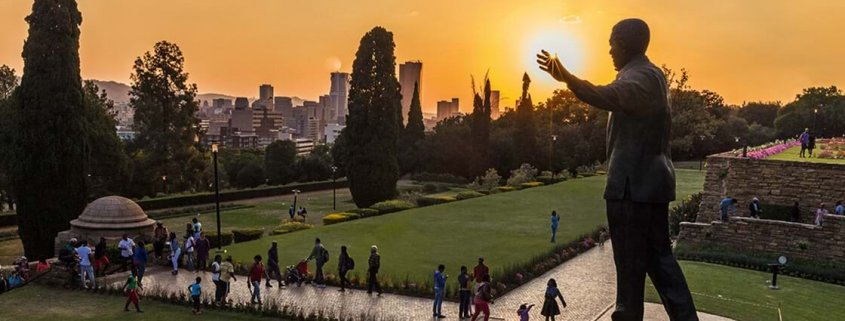South Africa slips into a recession
September 5, 2018 | Expert Insights

The Rand weakens as Africa’s most advanced economy reports slowed economic growth for the second quarter this year.
Analysts blame ineffective reforms and a sluggish agricultural sector for the deceleration of the economy.
Background
South Africa is an upper-middle-income economy and a newly industrialised country. Its economy is the second-largest in Africa, and the 34th-largest in the world. In terms of purchasing power parity, South Africa has the seventh-highest per capita income in Africa. However, poverty and inequality remain widespread, with about a quarter of the population unemployed and living on less than US$1.25 a day.
The 1913 Natives’ Land Act allocated only 8% of the land for black people. Whereas the white people, who were in minority, owned 90% of the land. The act formed an essential part of the South African legal framework for land control up until the fall of Apartheid in 1991.
The African National Congress (ANC), which has ruled South Africa since the fall of apartheid, promised reforms to redress racial disparities in land ownership. Despite more than 20 years of ANC rule, whites still own most of South Africa’s land. President Ramaphosa said expropriation without compensation will be one of the measures used by the government to speed up redistribution.
A recession is defined as two successive quarters of negative economic growth. South Africa’s First Quarter performance of this year was negatively impacted by Jacob Zuma’s resignation. The last time South Africa fell into a recession was during the Global Financial Crisis in 2009, and it had recovered well. It had been classified as an ‘Emerging market economy’ with a robust agricultural base.
Analysis
South Africa's economy has entered a recession for the first time in nearly a decade. Gross domestic product fell 0.7% in the second quarter, dragged down by weak performance in the agricultural sector.
The South African rand, which has been under pressure throughout the last several months, extended losses following the report. The currency fell as much as 2.6% to 15.2268 against the dollar. Yields on rand-denominated government bonds spiked 22 basis points to 9.22%, the highest level since Ramaphosa was elected leader of the ruling African National Congress in December.
The unexpected GDP weakness in the latest quarter came as a blow to the President, who is trying to revive the economy and woo foreign investors. Tuesday’s GDP figures led many economists to cut their full-year growth forecasts for South Africa. The main reasons behind the contraction in the second quarter were slowing agriculture, transport and trade sectors, according to Statistics South Africa. In particular, the agriculture market fell back by 29.2%, taking 0.8% off GDP.
The news is expected to increase concerns over the weakening rand, along with plans for a widely-debated land reform and negative after-effects triggered by state corruption under former president Jacob Zuma.
The South African national currency plummeted under the pressure of emerging market jitters in Turkey and Argentina. It is expected to get worse amid investors' deep concerns about a government push for land reform that may have far-reaching economic consequences.
On the stock market, the Top-40 index fell 0.9% in early trade, while the broader all-share index was down 0.8%. Government bonds also slipped, with the yield on the benchmark instrument due in 2026 up 13 basis points at 9.340%.
A draft proposal to confiscate white-owned farms and redistribute land to address racial inequalities was withdrawn for further study. However, the ruling African National Congress (ANC) has reaffirmed its commitment to the plan. The main positive contributions came from the mining industry and finance, real estate and business services.
Assessment
Our assessment is that South Africa’s fundamentals are weakened by the recent land expropriation act. The act will re-distribute land owned by white farmers to members of the disadvantaged communities. A similar program resulted in a near economic meltdown in Zimbabwe a few years ago, as productive farmers were stripped of their land holdings. We feel that South Africa will need external assistance if it fails to stop the Rand from falling in value. We believe, however, that the IMF will look to intervene before Africa’s most advanced economy falls into a depression.








Comments